- For my first visit to Momonoki and my review of their Tonkotsu(-Gyokai) Ramen (No. 149), click here.
- For my second visit to Momonoki and my review of their Yuzu Shoyu Ramen (No. 163), it’s coming soon.
My previous reviews expressed my admiration for Momonoki as the best ramen shop in Atlanta and for its notable achievement for being able to make very good ramen and excellent interpretations of Japanese B-kyu cuisine and a terrific bakery. But this tsukemen was a disappointment given the expectations that Momonoki has established.
The sole caveat-free positive of this bowl was the tonkotsu (-gyokai) tsukemen concentrated dipping broth. Momonoki apparently is loathe to label this broth as a “tonkotsu-gyokai,” but this broth features prominent seafood flavors in conjunction with pork broth, in part due to the presence of gyofun (魚粉, “fish powder”). The gyofun doesn’t appear to be in Momonoki’s tonkotsu-gyokai ramen, so I suspect it’s used in the tsukemen to provide a more concentrated kick. In any case, the dipping broth was quite good, though it could’ve been a bit thicker/more concentrated to as to better cling to the noodle.
That’s it for the positives. The most disappointing and perplexing part of this tsukemen was the inclusion of cabbage with the noodles. Cabbage does not appear in ramen–the only case I can think of is ramen from the “Unnamed” shop, “Mumei” (「」(無名) in the Kanda neighborhood of Tokyo–in part because the thickness and bitterness of cabbage just doesn’t really work with ramen broths. It’s the exact same reason why I’ve never quite understood the appeal of Ginza Kagari (review of the original to be posted in the future), where the texture of the vegetables in the broth is disruptive rather than offering complementary contrast. In Momonoki’s case, the cabbage was only very lightly blanched, and the bitter notes from the cabbage were off-putting when dipped into the broth. I asked my server as to what was the rationale behind adding cabbage to the tonkotsu-gyokai tsukemen, and it appears that its only functional purpose was to add filler volume to the bowl.
The rest of the bowl was disappointing as well, if only to a slightly lesser extent. The pork belly chashu, which normally works well in the regular ramen broth, appeared to have been sliced and then braised/soaked in a shoyu-based mixture for far too long, then left out in the open afterwards, making for a dry piece of meat that was overly soaked with shoyu and salt notes, obscuring the flavor and texture of the meat itself. I’m not sure if this is the same chashu preparation method used for the ramen, but it definitely did not work here. The noodles were wide, but flat rather than thick: it reminded me of Chinese yaka mien rather than tsuskemen noodles. They were cooked almost too al dente, and something about the noodle composition differed from regular tsukemen, which meant that they clumped together after a few minutes, which shouldn’t have happened. According to the menu, this tsukemen does not come with menma for some inexplicable reason. Finally, the ajitama was comically mis-peeled during the shelling process (post-boil, pre-marination). As evident form the photo, a good quarter portion of the ajitama was missing and it should have never been served in that state.
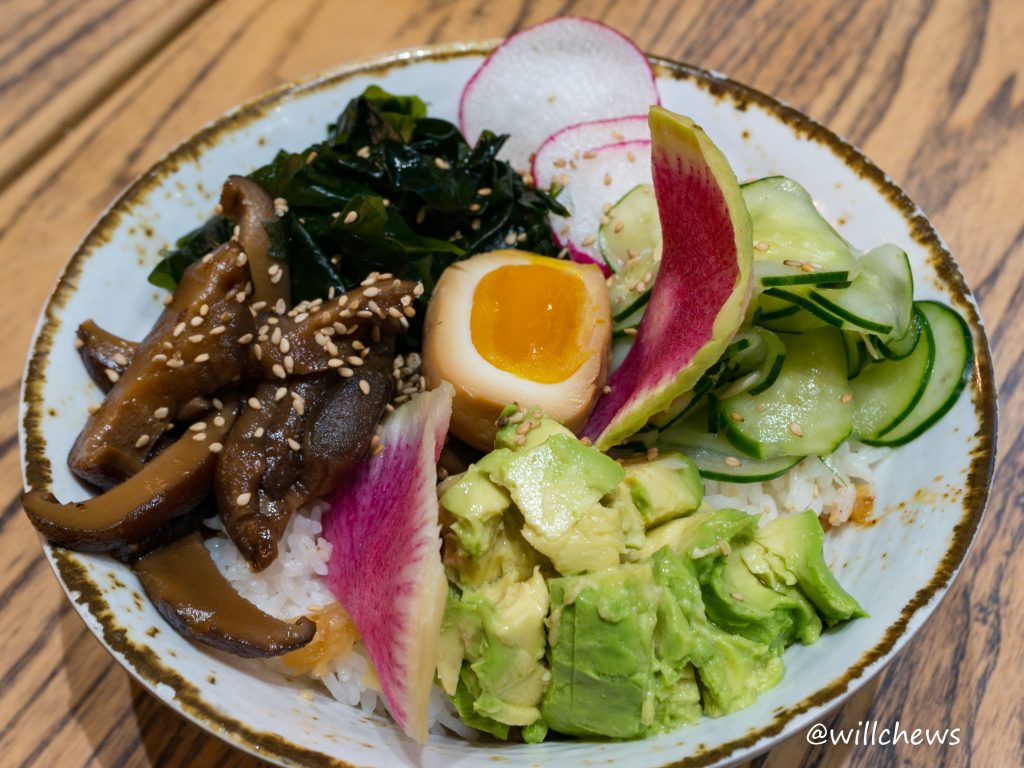
Other items we ordered, such as as the karaage and the avocado-shiitake rice bowl were fine, though I thought the karaage was a bit scrawny and not as juicy as past iterations. This visit to Momonoki was very disappointing; perhaps it was because we came in at 7:00pm on a Sunday night, or perhaps it was just an accidental slip in performance from the restaurant’s past high standards. Regardless, the conception behind the tonkotsu-gyokai tsukemen is extremely flawed and not at all recommended.
Q(ueue) Factor: None, though ordering through the app–necessary to get the rewards dollar for every $100 spent–was a massive pain as usual
Sense: Plenty of light even in evening dinning hours. A sense that the whole restaurant was just off its game a little bit.
Price: Tonkotsu (-Gyokai) Tsukemen ($14) + Tax/Tip
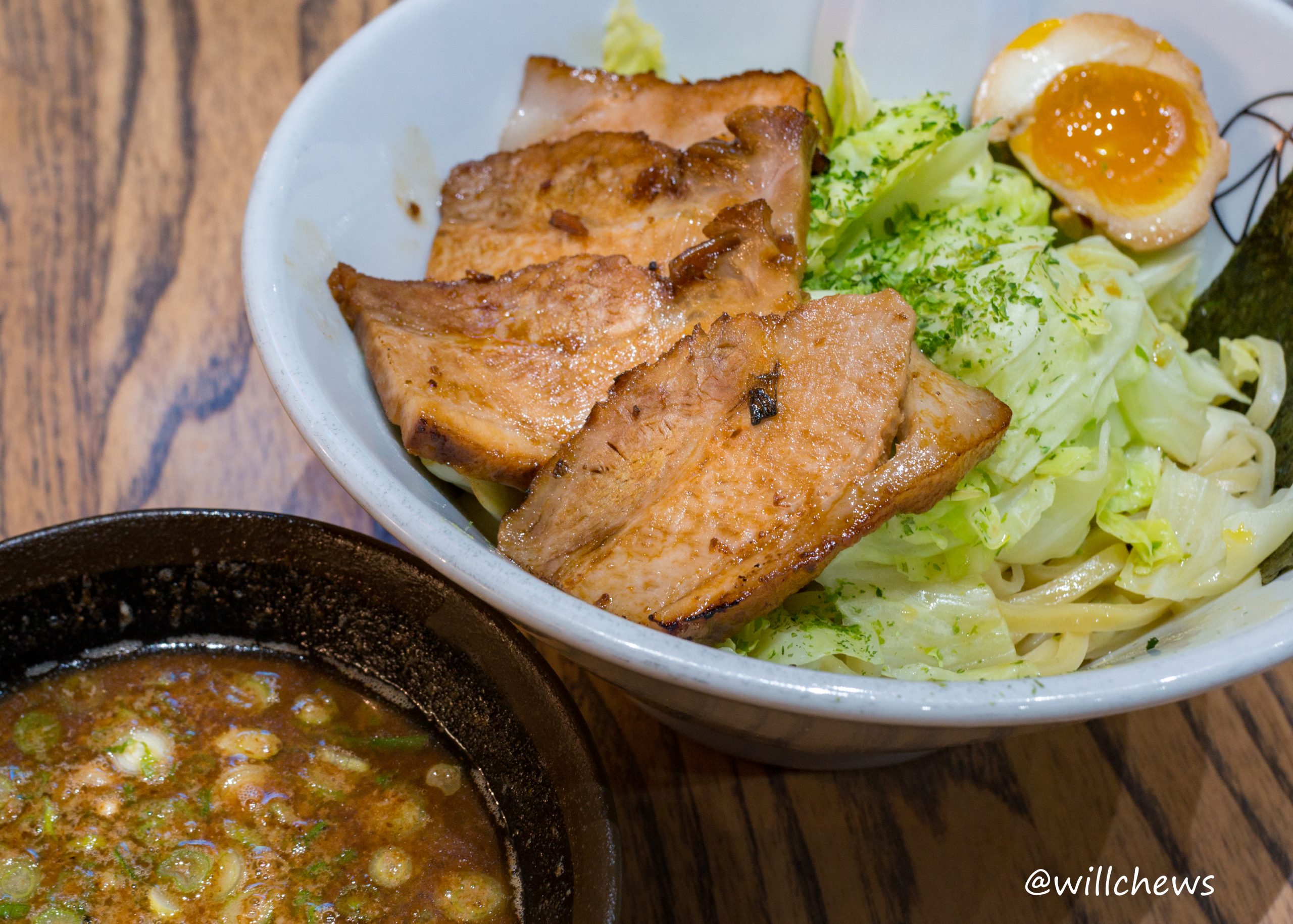
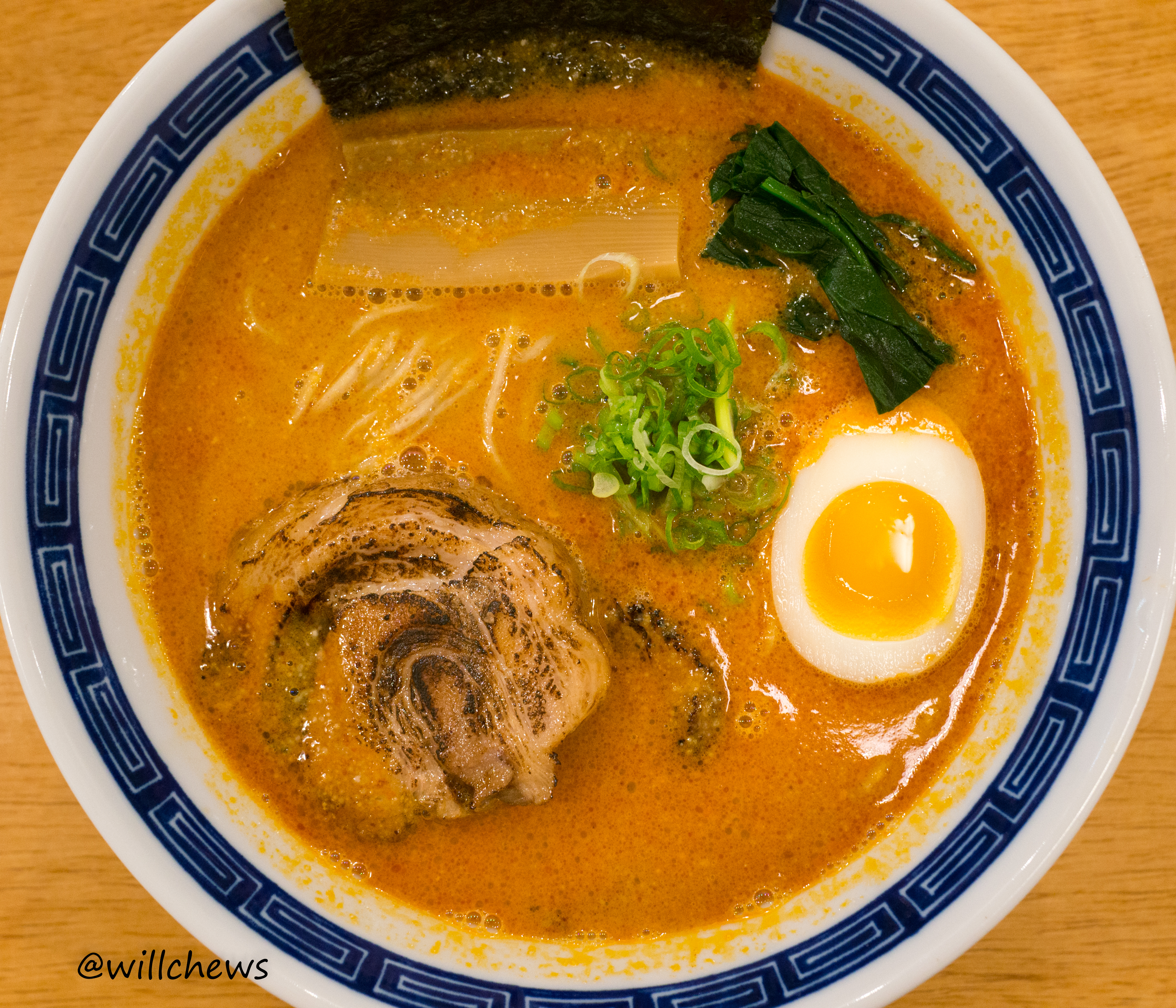
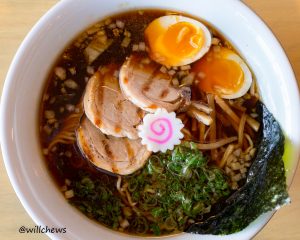
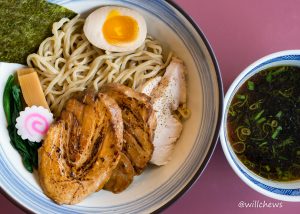
Hey Will, thanks for the review on our tsukemen.
I do agree some of your feedbacks, I will try to use different tsukemen and not include cabbage but add menma in near future.
Sorry about the Chashu and ajitama, we will work on the consistency for both items to a higher standard.
Once I have modified the bowl, please come back and give our tsukemen another try. Thank you again for the valuable review.